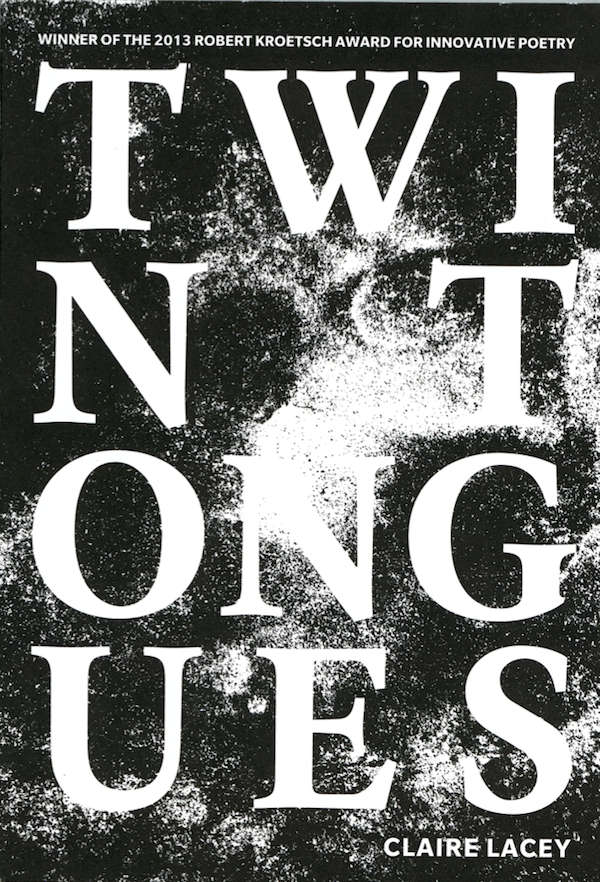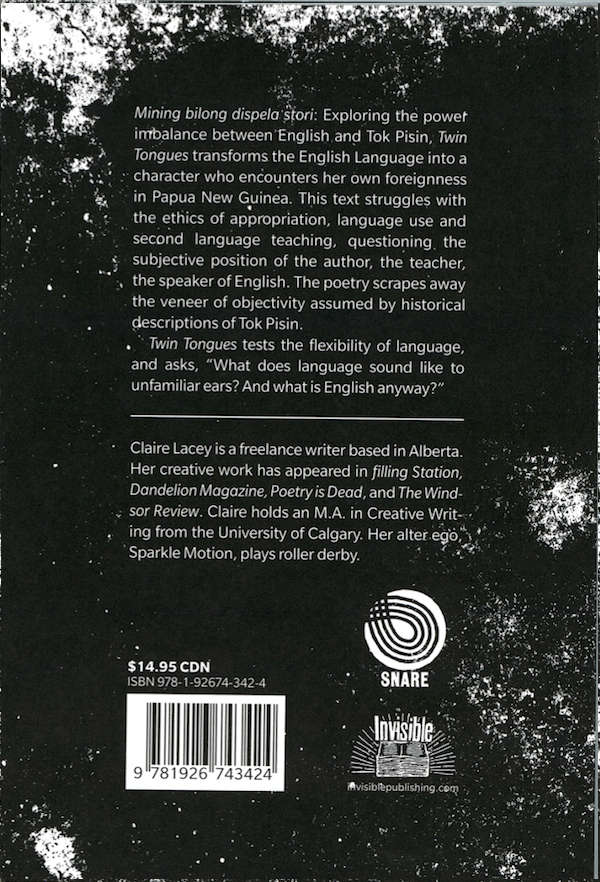From the double-talk of Jenya Doudareva:
A Western teacher far in the Eastern hemisphere. She is unprepared for the monsoon season, for her skin getting all sticky with humidity, for the betrayal of her umbrella. A strange lost bird in her apartment - a crow - mocks the very concept of the teacher’s teachings with relentless “Fuck you! I’m a crow! Fuck you! I’m a Crow! Fuck you! I’m a crow!…” Twin Tongues is a tale of English the colonist, the alien species that eradicates the native fauna only to discover its own alienness.
English is pervasive; it is easy to take its reach even to the most remote corners of the world for granted. Sometimes we vilify the tongue and blame its evil nature for the death of other languages. At other times we feel aggravated that not everyone in the world speaks English when we try and talk at them. How should one feel about this language? It’s so confusing!
Twin Tongues - a chaotic blend of fragmented narration and poetry - personifies this confusion. English becomes a thoroughly well-intentioned lady who is on a mission to teach the tongue in Papua New Guinea, where Tok Pisin, a pidjin derivative of English, is already the primary lingua franca (By the way, Papua New Guinea has more indigenous languages than any other country - over 820. We learn that the conception of Tok Pisin helped the local population retain its own identity in the time of colonization. Now English is diluting this identity yet again).
But back to our nice lady - she is doing the best that she can. She is nursing a cursing crow back to health. The bird’s repetitions of the heroine’s native phrases sound ridiculous and arbitrary. You know that feeling when you say a word over and over until you are unsure if that word has any meaning? How bizarre that we have collectively agreed to call particular combinations of sounds English. Does it even matter that in its dreams the local crow speaks English?
Du double langage de Jenya Doudareva:
(Traduit par Alex Micati)
La langue anglaise étant omniprésente, il est facile de la voir étendre ses tentacules dans les recoins les plus éloignés de la planète. Nous jetons parfois le blâme sur celle-ci lorsque vient le temps de trouver un coupable responsable de la disparition d’autres langues. Il nous arrive parfois de sentir un certain agacement lorsque les interlocuteurs anglais sont aussi rares qu’une pluie dans le désert. Être ou ne pas être anglophone? Que de confusion.
Twin Tongues, un amalgame chaotique de prose et de poésie, personnifie cette confusion qui nous envoûte. Dans les pages de cet ouvrage, la langue anglaise prend les traits d’une vieille dame, pleine de bonnes intentions, partant propager la bonne parole en Papouasie Nouvelle-Guinée. Dans cette île du Sud se parle déjà un dérivé de l’anglais, le Tok Pisin, considéré comme la lingua franca du lieu. D’ailleurs, on compte 820 langues indigènes en Papouasie Nouvelle-Guinée, un nombre beaucoup plus important qu’ailleurs. Là-bas, le Tok Pisin était un moyen d’assurer la défense de l’identité locale, lors de la colonisation du territoire. On assiste aujourd’hui à un nouvel épisode d’anéantissement identitaire, sous l’égide de l’anglais.
Mais revenons à notre dame. Elle survit du mieux qu’elle peut. Elle offre des soins à un corbeau ayant perdu toute reconnaissance. Les mots de l’héroïne sonnent ridicules et arbitraires lorsqu’ils sortent de la bouche de l’animal. Avez-vous déjà eu le sentiment de répéter un mot ad nauseam, pour ensuite ne plus savoir s’il avait une quelconque signification? Le fait que la collectivité ait donné le nom d’anglais à un groupe de combinaisons sonores est bizarre. Dans ses rêves, le corbeau local est anglophone. Et alors?


